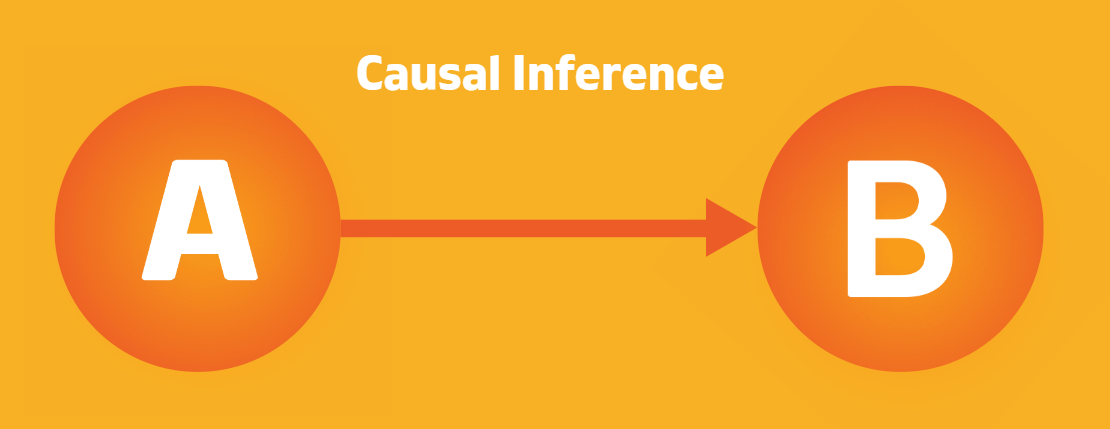What is Causal Inference?
Data analytics are derived almost entirely from a basic understanding of the theories and mechanisms of causal inference. It is therefore critical to understand how causality shapes useful analytics.

One of the most common reasons businesses employ data analytics is to discover fresh insights and help make strategic decisions. Some of those decisions might be as trivial as “what should we put on this email subject line?”, while other decisions may be large enough to reorient the organization’s future trajectory.
Data analytics provides the supporting evidence needed to shape the decisions the organization has to make, and leveraging well-constructed analysis or insight can positively transform a business or organization.
Given that the opportunity cost of most decisions can be very high, and the more confident we want to be in the expected results of a decision, it is important to feed as much good data and information into the funnel as possible.
So why does causal inference matter for useful data analytics? Because causal inference is a technical domain that, boiled down, allows us to determine why events happen in the world today, and determine which variables lead directly to which effects.
Causal inference is a way of discovering the truths about the way the world actually works. Businesses and organizations are, after all, beholden to what is happening in reality, not some assumption-filled model lacking application.
I want to note that causal inference can get extremely complicated extremely quickly. So the goal of this course is to break it down into simpler pieces and cases that we can use to solve 95% of all data analytics problems. For the final five percent of the material, we will link to additional questions and review to hone your skills.
What you will learn:

- How to approach different causal inference case study problems.
- How to apply causal inference to different analytics problem sets.
- How to use advanced causal inference techniques and avoid common causal inference mistakes.
Causal Inference Examples:
“Causal inference is the process of determining the independent, actual effect of a particular phenomenon that is a component of a larger system.” (Causal Inference, 2022)
Causal inference aims at answering causal questions as opposed to just statistical ones. Here are some examples of questions that fall under the umbrella of causal inference:
- Did the treatment for disease directly help those who took it?
- Did the marketing campaign lead to increased sales this month?
- How big of an effect would increased wages have on productivity?
Efficiently answering these essential and practical questions may not be possible with traditional approaches (e.g., linear regression or standard neural networks), since they can only establish correlation, not causation.
So, causal inference analyzes the response on an effect variable when a cause-of-effect variable is changed. And for any system of business we have, we already have a “steady state” that exists before we make changes.
As an illustration, Facebook has several million users that come onto the platform every day. They use it for a period of time. They look at other people’s stories. They watch a certain number of ads. Advertisers pay for some amount of those ad spaces, and then people (hopefully) respond to (purchase) their products based on those ads. That is, by definition, a system.
That system is not static however, Facebook periodically changes how ads are delivered. Causal inference is the process of understanding the impact of the specific components of the change on the system, and how to iterate on those components to maximize or minimize the impact of those changes, so that we may anticipate those system changes.
So how do we determine causality?
Reference List Entry:
- Wikipedia contributors. (2022, July 25). Causal inference. Wikipedia. https://en.wikipedia.org/wiki/Causal_inference
33%
CompletedYou have 56 sections remaining on this learning path.
Advance your learning journey! Go Premium and unlock 40+ hours of specialized content.